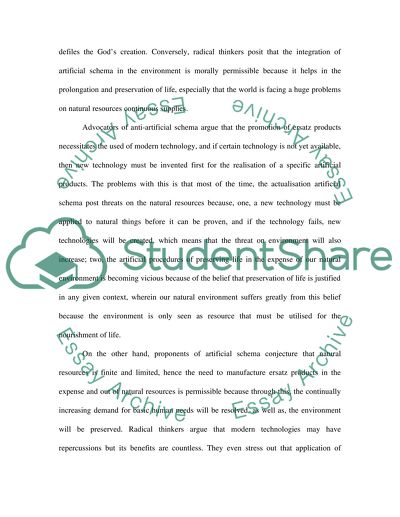Cite this document
(“Ethics and Sustainability Essay Example | Topics and Well Written Essays - 2500 words”, n.d.)
Ethics and Sustainability Essay Example | Topics and Well Written Essays - 2500 words. Retrieved from https://studentshare.org/science/1534283-ethics-and-sustainability
Ethics and Sustainability Essay Example | Topics and Well Written Essays - 2500 words. Retrieved from https://studentshare.org/science/1534283-ethics-and-sustainability
(Ethics and Sustainability Essay Example | Topics and Well Written Essays - 2500 Words)
Ethics and Sustainability Essay Example | Topics and Well Written Essays - 2500 Words. https://studentshare.org/science/1534283-ethics-and-sustainability.
Ethics and Sustainability Essay Example | Topics and Well Written Essays - 2500 Words. https://studentshare.org/science/1534283-ethics-and-sustainability.
“Ethics and Sustainability Essay Example | Topics and Well Written Essays - 2500 Words”, n.d. https://studentshare.org/science/1534283-ethics-and-sustainability.


